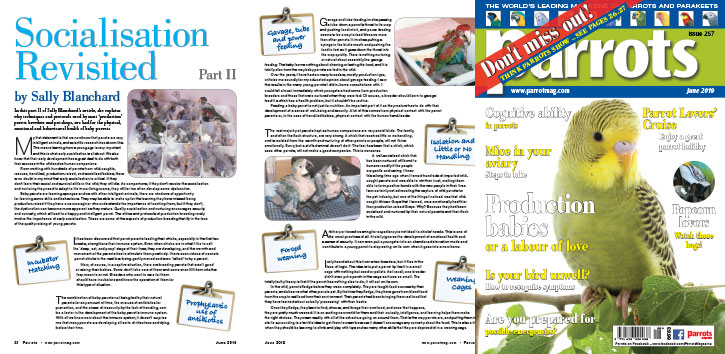
by Sally Blanchard
In this part II of Sally Blanchard’s article, she explains why techniques and protocols used by most ‘production’ parrot breeders and pet shops, are bad for the physical, emotional and behavioural health of baby parrots.
My first statement is that we now know that parrots are very intelligent animals, and scientific research has shown this. This means learning from a young age is very important and this is what early socialisation is all about. We also know that their early development has a great deal to do with both their success in the wild and as human companions.
From working with hundreds of parrots from wild-caughts, rescues, hand-fed, production-raised, and socialised babies, there is no doubt in my mind that early socialisation is critical. If they don’t learn their social and survival skills in the wild, they will die. As companions, if they don’t receive the socialisation and nurturing they need to adapt to life in our living rooms, they will far too often develop some dysfunction.
Baby parrots are learning sponges and as with other intelligent animals, there are windows of opportunity for learning some skills and behaviours. They may be able to make up for the learning they have missed being production-raised if they have a new caregiver who understands the importance of teaching them, but if they don’t, the dysfunction can become more apparent as they mature. Quality socialisation and nurturing encourages security and curiosity, which all lead to a happy and intelligent parrot. The ethics and protocols of production breeding rarely involve the importance of early socialisation. These are some of the aspects of production breeding that fly in the face of the quality raising of young parrots.me.
Buy Now!

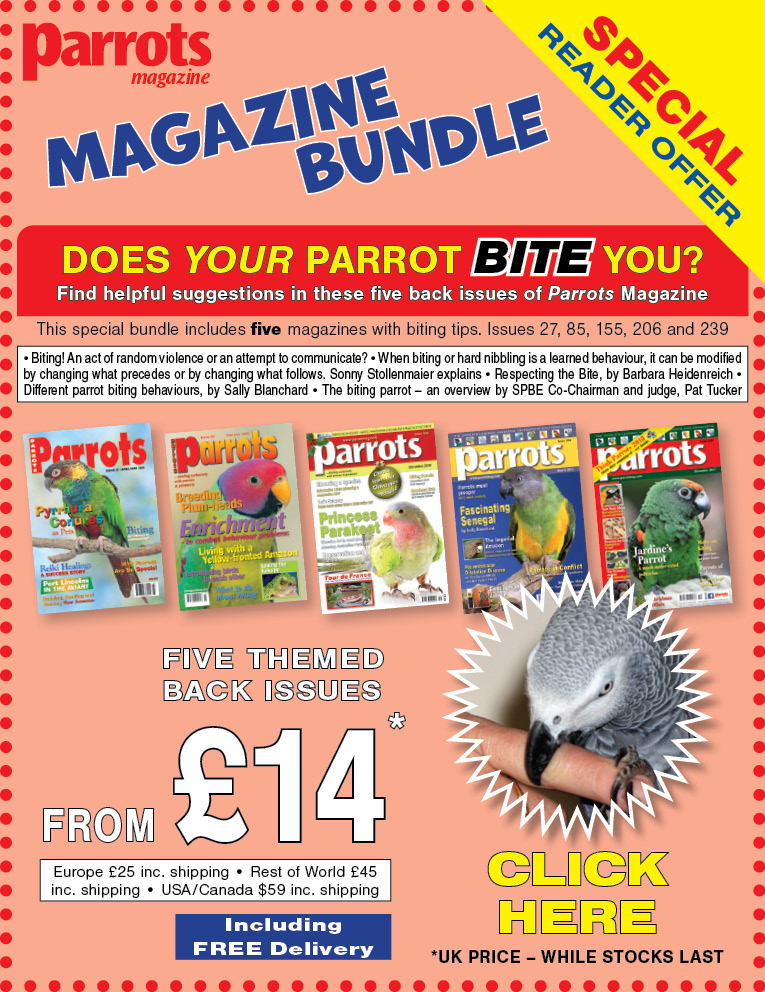
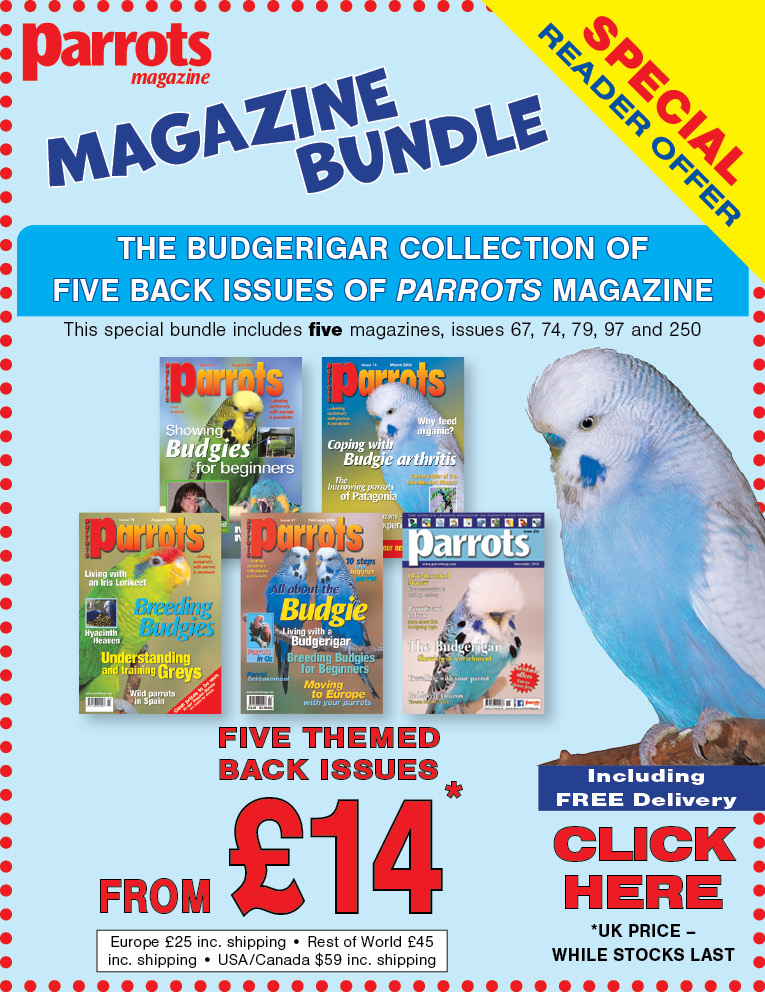
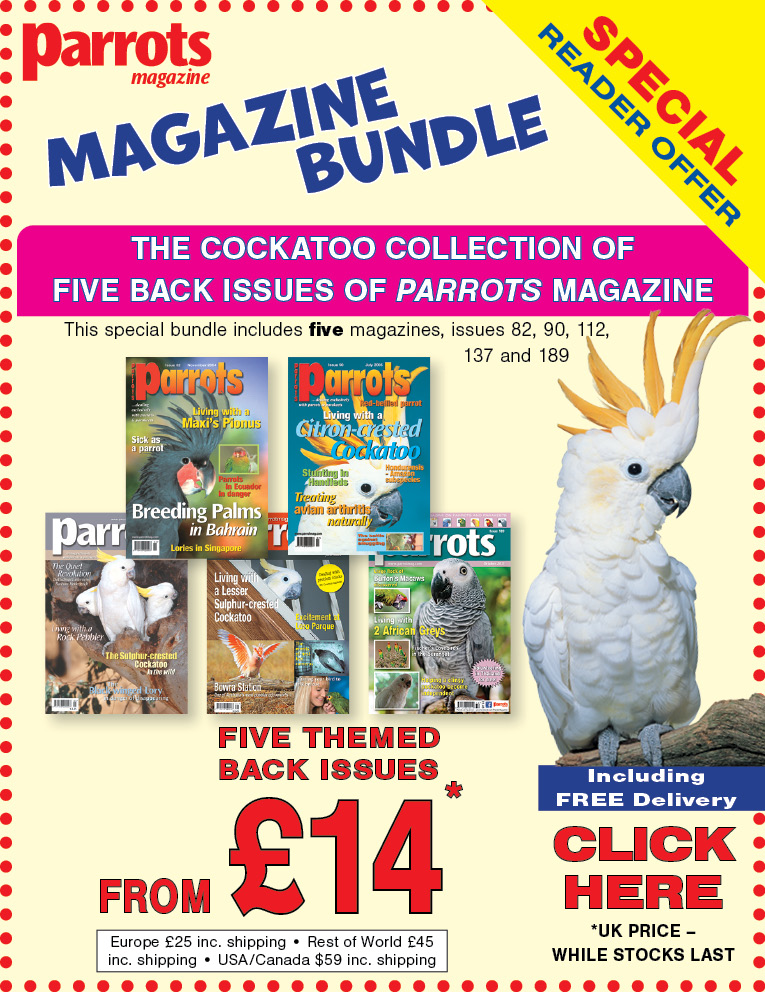
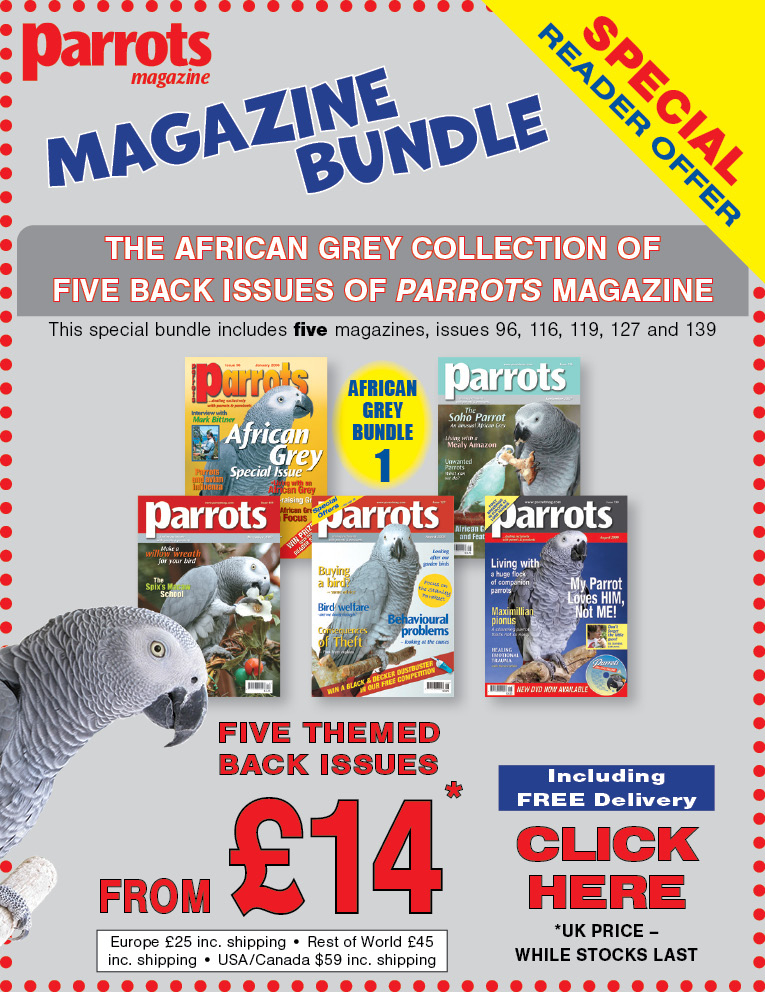
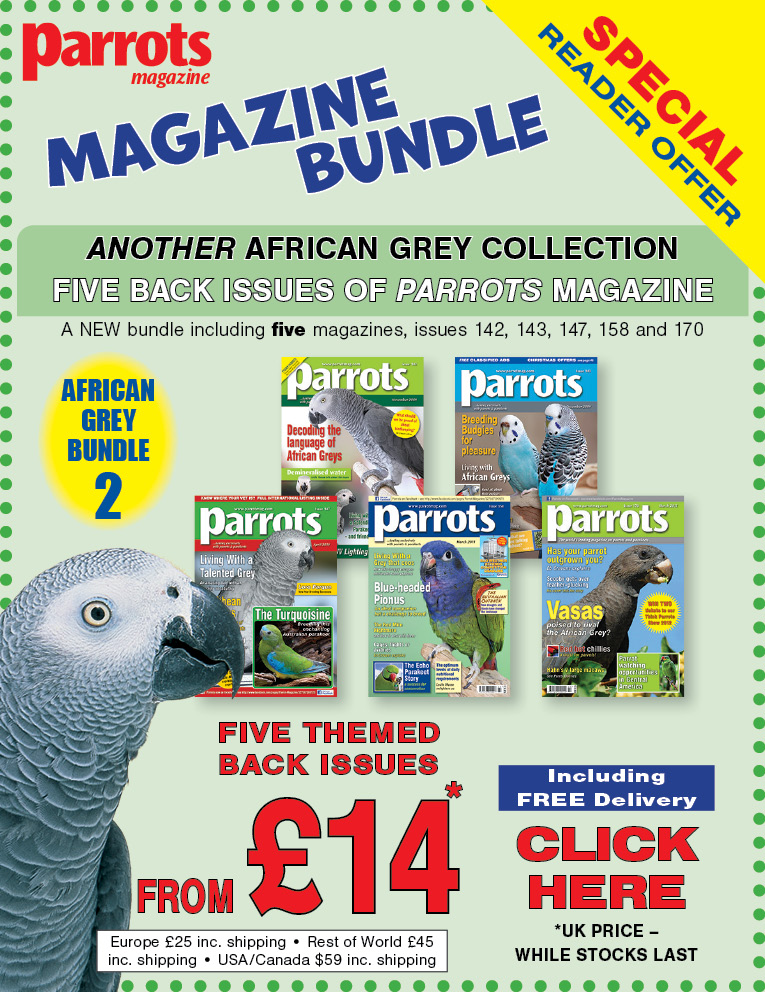
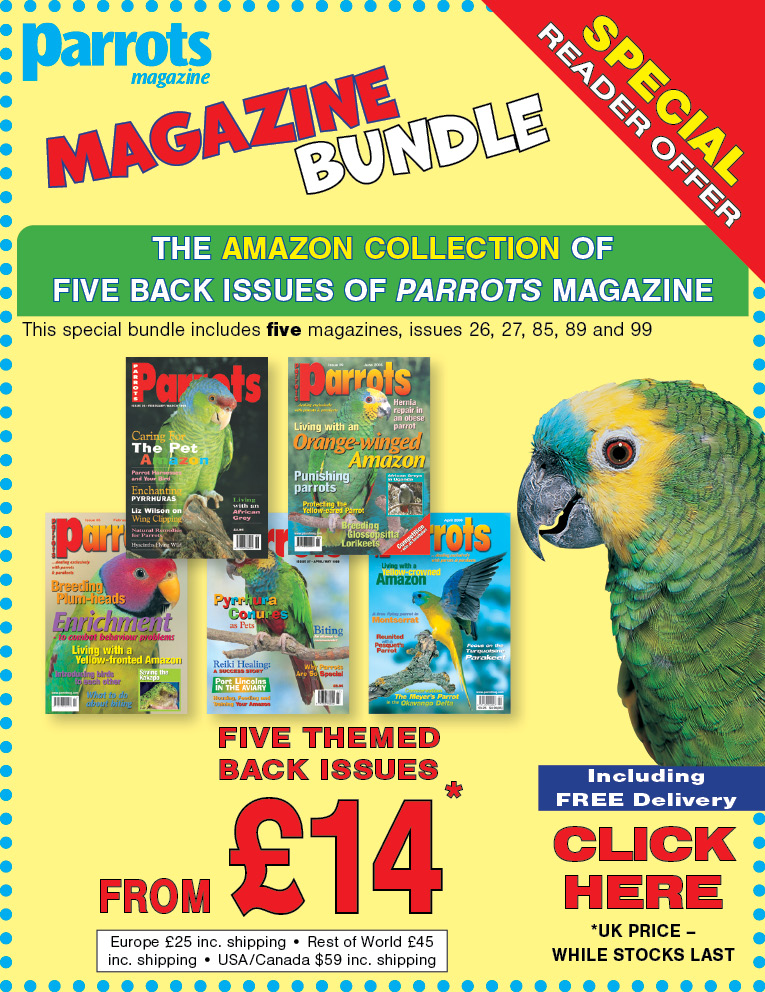

Parrot Chat
Buyers Guides
Breeding articles